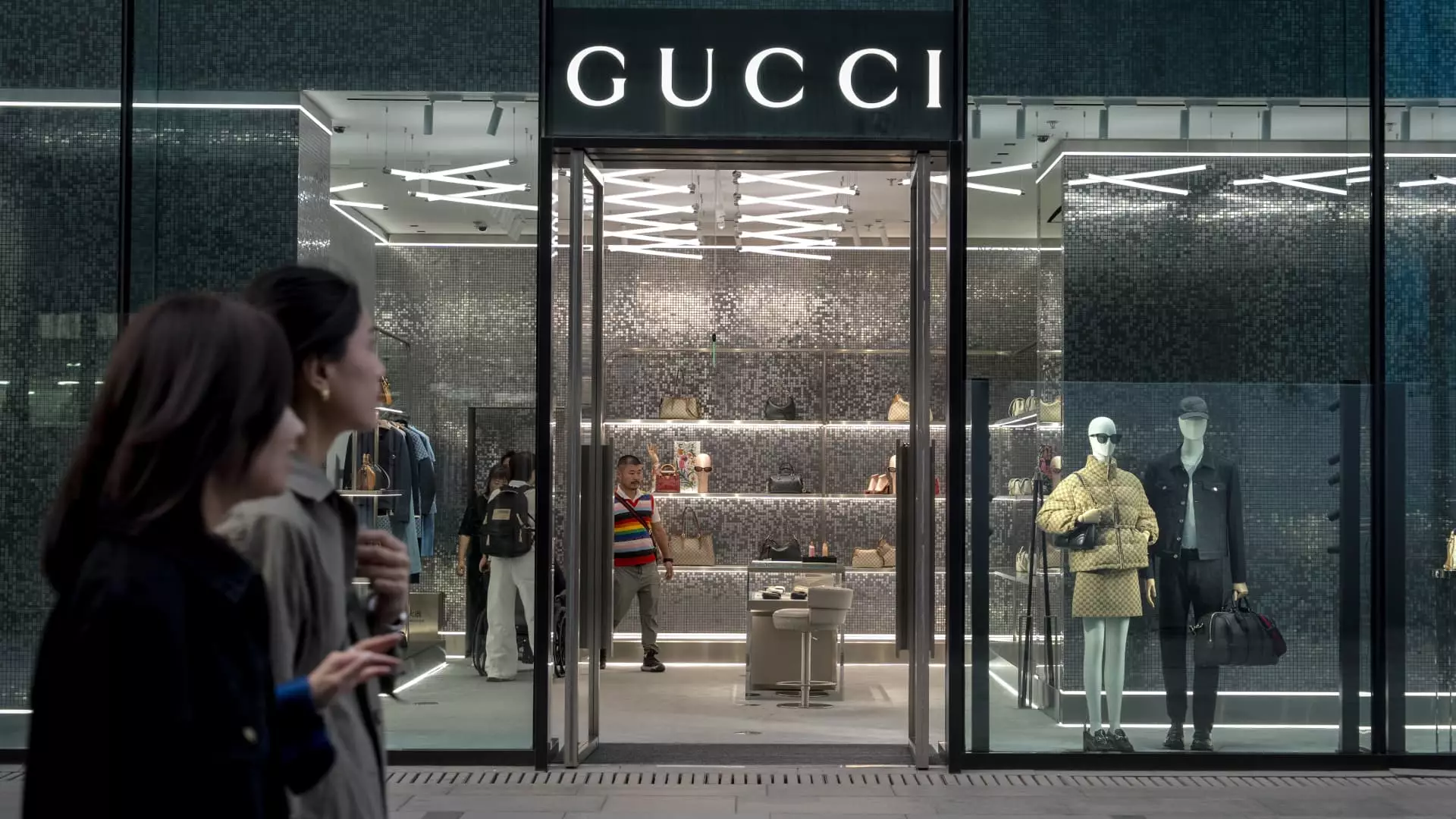Kering has made a bold decision that could redefine the Gucci brand, but the stakes are astronomically high. The company’s announcement of Demna Gvasalia as the new artistic director is not just a reshuffling of roles; it’s an audacious gamble that raises eyebrows and invites scrutiny. This isn’t just about fashion; it’s a strategic maneuver in a time of market volatility and shifting consumer appetites. The dramatic plunge of Kering’s shares by over 10% reflects not just the immediate market reaction but a broader skepticism about the company’s direction.
Gvasalia, the industry darling known for his disruptive vision at Balenciaga, embodies a unique mix of street-savvy aesthetics and high-fashion flair. However, can this daring creativity translate into the revitalization of Gucci? In a world where luxury brands are gravitating toward a more understated approach, Gvasalia’s maximalism risks alienating a consumer base longing for authenticity and subtle elegance. Kering’s track record with Gucci has been one of fluctuating fortunes, and this high-profile appointment feels simultaneously like a beacon of hope and a reckless venture into uncertain waters.
The Burden of Expectations
Demna’s ascension is laden with expectations, as he steps into a role that has seen significant turnover. The departure of Sabato De Sarno, combined with Gucci’s troubling 24% drop in sales last quarter, raises questions about whether Gvasalia can not only reverse these trends but also restore the brand’s iconic status. His controversial past, particularly the backlash from provocative campaigns that blurred ethical lines, further complicates his role. Will the public embrace him as a transformative figure, or will they resist the boldness he brings?
François-Henri Pinault, Kering’s chairman, has placed immense faith in Gvasalia, labeling him a necessary force for rejuvenating Gucci. However, this enthusiasm could prove misguided. The luxury market is shifting, with consumers increasingly favoring brands that reflect genuine values rather than shock tactics. Ultimately, Gvasalia’s radical approach could backfire, amplifying Gucci’s woes if it fails to resonate with a suffocated customer base.
A Risky Road Ahead
Kering’s future hinges precariously on an appointment squeaking into the spotlight at a time of existential crisis for Gucci. The increasing skepticism voiced by analysts, such as those from Jefferies, signals a growing concern that it may take years to see the impact of Demna’s influence on the brand. Can Gucci afford to wait until 2026 for revitalization? With a resounding “no,” experts hint at the urgent necessity for Kering to recalibrate its vision and strategies, aiming for innovative yet grounded leadership that aligns with today’s fashion ethos.
In a marketplace increasingly driven by consumer sentiment and ethical practices, Demna’s unconventional edge must be balanced delicately against the evolving definitions of luxury and desirability. Otherwise, Kering runs the risk of gilding the lily, creating a spectacle that detracts from the brand’s inherent value, leaving Gucci battling not only market trends but also the ghosts of misjudged creativity. The road ahead may be paved with high hopes, but the final destination remains shrouded in uncertainty.

